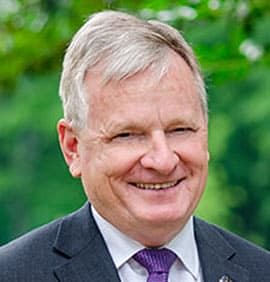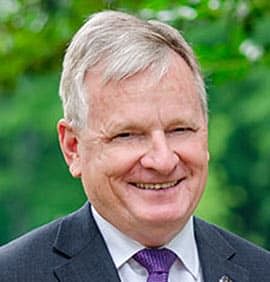The North Carolina State Employees Health Plan (SEHP) crafted a proposal called the Clear Pricing Project. The Clear Pricing Project proposed to pay network hospitals based on a transparent price schedule. Considering that SEHP purchases benefits for something like 720,000 people in North Carolina at a cost to taxpayers of billions of dollars, this seems reasonable. When you’re the fiduciary for thousands of dollars, let alone add six more zeros, it would seem to be non-negotiable to actually see the numbers and not write a check to a black box. Nonetheless, a few of North Carolina’s largest hospital chains disagreed. They want to bill whatever they want and to do so shrouded by a cloak of secrecy.
I don’t want to put words in anyone’s mouth, but it appears that the CFOs and CEOs of these hospital systems don’t believe that the treasurer of the state has a right to see what he’s spending taxpayer money on. And these CFOs and CEOs have expressed their position with a brutal onslaught of personal attacks against the North Carolina Treasurer’s office.
I feel like this episode needs a trigger warning. As David Contorno, also from North Carolina, has said on this podcast (EP186), the only way to pay less for health care is to pay less for health care. It’s hard to do that if you don’t know how much you’re paying. It just blows my mind when all across this country, financial toxicity is reducing health outcomes while nonprofit health systems—excluding some of the rural ones—are yanking in record profits, and employers and public entities are not messing around when they say that health care prices are an existential threat.
Let’s all get on the same side of this issue, please. Ultimately, it’s everyone’s responsibility to do the right thing right now. In this health care podcast, I am speaking with North Carolina State Treasurer Dale Folwell.
You can learn more at nctreasurer.com.
You can also connect with Treasurer Folwell on Twitter at @DaleFolwell or on Facebook at Dale Folwell.
 Dale R. Folwell, CPA, was sworn in as State Treasurer of North Carolina in January 2017. As the keeper of the public purse, Treasurer Folwell is responsible for a $100 billion state pension fund that provides retirement benefits for more than 900,000 teachers, law enforcement officers, and other public workers.
Dale R. Folwell, CPA, was sworn in as State Treasurer of North Carolina in January 2017. As the keeper of the public purse, Treasurer Folwell is responsible for a $100 billion state pension fund that provides retirement benefits for more than 900,000 teachers, law enforcement officers, and other public workers.
Under Treasurer Folwell’s leadership, the pension plan was rated among the top five highest funded in the country and won accolades for proactive management and funding discipline. In 2018, the state’s coveted AAA bond rating was reaffirmed by every major rating agency, making North Carolina one of only 13 states in the country to hold that distinction. Treasurer Folwell also oversees the State Health Plan, which provides medical and pharmaceutical benefits to more than 720,000 current and retired public employees and is the largest purchaser of health care in North Carolina.
Folwell was first elected to public office as a member of the Winston-Salem/Forsyth County Board of Education. He brought his problem-solving skills to the North Carolina General Assembly in 2004, where he served four terms in the House of Representatives, including one term as Speaker Pro Tempore.
Treasurer Folwell began his career as a blue-collar worker and became a Certified Public Accountant and investment adviser after earning bachelor’s and master’s degrees in accounting from UNC-Greensboro. Married for more than 30 years, he and his wife Synthia have three children and live in Winston-Salem.
02:51 The North Carolina state spend on health care.
04:14 “In medical terms, why has this become acute?”
04:53 One week of work for starting North Carolina troopers and teachers out of every four is going to family health care costs.
06:05 The problem of health insurance vs health care.
06:51 “If they can do this to the largest customers in this state … imagine what they can do to them.”
07:13 “This is about the industry whose whole business model is based on secrecy.”
08:44 “We’ve already focused on the why, and now we’re [focusing] on the how.”
09:48 “We’re trying to attack a problem. The problem is that none of [them] consume health care; it all consumes them.”
13:07 What the Clear Pricing Project aims to do.
13:37 “Why is it that we don’t have trust in the people of this … country to actually consume and evaluate the value and cost of things in health care when they are able, very successfully, to evaluate the value and cost of everything else in their life?”
16:31 “We’re not trying to be disruptive; we’re trying to fix a problem.”
18:25 Why the Clear Pricing Project went the self-insured route and how that’s worked for them.
23:34 Who’s behind the institutions fighting transparent pricing in North Carolina.
24:49 Instances where the Clear Pricing Project could actually stand to help rural hospitals make more money.
27:15 Dale’s advice for other states trying to do this.
28:52 Dale’s message to health care providers out there who want to see this change to price transparency.




